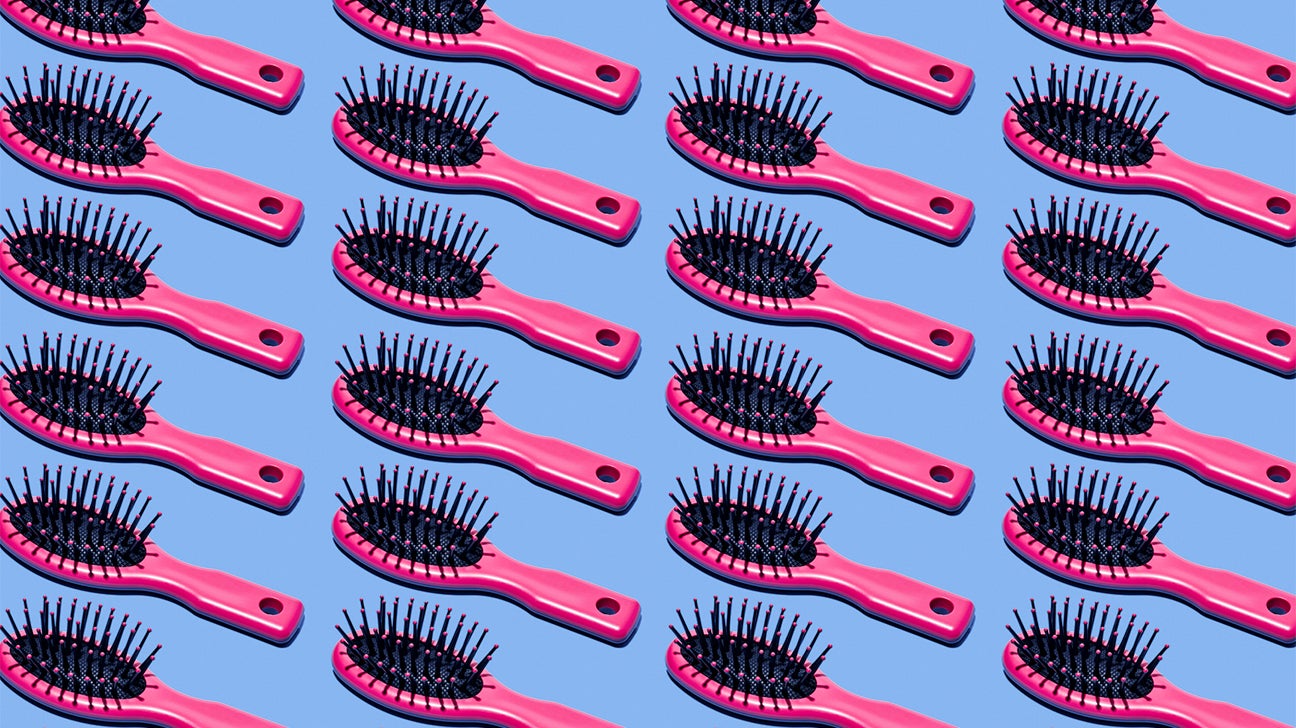Have your luscious locks lost their luster lately? While hair loss can be a normal part of getting older, rapid hair loss could be a sign that something’s up. If you’ve also been losing weight, it’s important to understand whether your weight loss and hair loss could be related.
Can weight loss cause hair loss?
Not all weight loss leads to hair loss. But there is a link between hair loss and certain weight loss methods, such as:
- rapid weight loss
- restrictive and crash diets
- low protein diets
- weight loss surgery

Rapid weight loss
Sudden or rapid weight loss is associated with a condition called telogen effluvium (TE). It’s the most common cause of widespread hair loss.
Why does it happen? Stress or trauma may temporarily mess with your hair’s growth cycle and cause too much hair to shed at once.
Nutrient deficiencies also seem to be connected to this condition, but that doesn’t mean it’s always a good idea to hit the supplement aisle. In some cases, getting too much of certain vitamins can actually make hair loss worse or put you at risk of toxicity.
A healthcare professional can help you decide whether supplements are right for you.
Keep in mind that TE usually lasts only about 6 months and tends to clear up on its own.
Restrictive and crash diets
If you’re following a very restrictive diet to lose weight, you may be cutting out entire food groups. This can lead to deficiencies in nutrients like zinc, protein, iron, and fatty acids. And those deficiencies can be bad news for your hair health.
A 2015 study of 180 women with hair loss found that iron deficiency and psychological stress were common causes of hair loss.
Research suggests that very low calorie crash diets are another culprit for these nutrient deficiencies. Dieting can also cause psychological stress, which is a major hair loss trigger.
It’s important to talk with a healthcare professional before starting a new diet. In general, aim for a balanced diet that includes a variety of fresh fruits, vegetables, grains, and proteins.
Low protein diets
Amino acids help your body produce the main structural protein of hair, called keratin. Deficiencies in specific amino acids (like leucine, histidine, valine, and cysteine) are common in folks with hair loss.
A 2017 study in 100 people with hair loss found that a large portion of the participants had leucine and histidine deficiencies. Cysteine and valine deficiencies were also common.
To up your amino acid intake, you can add more protein to your diet. Meat is a solid source of protein, but there are vegetarian and vegan protein options too. Some popular choices are:
Weight loss surgery
Weight loss surgery (such as sleeve gastrectomy) has been linked to low levels of protein, vitamins, and minerals — and those deficiencies can lead to hair loss.
A 2018 study of 50 folks who underwent a sleeve gastrectomy found that 56 percent of participants experienced hair loss. Researchers also noted that the peeps who had hair loss also had low levels of vitamin B12 and zinc before and after surgery.
It’s tough to say exactly how long hair loss will last after weight loss surgery. In a 2021 study of 112 women who had sleeve gastrectomy surgery, 72 percent of participants experienced hair loss after surgery. In 79 percent of those people, the hair loss started 3 to 4 months after surgery and resolved in about 5.5 months.
Preventing hair loss after weight loss
Hair loss during weight loss tends to be triggered by rapid weight loss or a diet-related nutrient deficiencies. Try to stick to a sustainable weight loss program instead of an overly restrictive diet. And aim to maintain a balanced diet that includes all the vital vitamins and nutrients your body needs.
Always talk with a healthcare pro before making any major changes to your lifestyle. They can customize a diet or supplement regimen to help get your hair growth back on track.
When to see a doctor
Hair loss itself isn’t a risk to your health, but it can be a sign of an underlying medical condition. It’s important to contact a doc ASAP if you experience:
- rapid hair loss
- sudden thinning of hair
- clumps of hair falling out
- patchy or circular bald spots
tl;dr
Hair loss is a common side effect of rapid weight loss or nutrient deficiencies. While the hair loss itself isn’t dangerous, the underlying cause might be more serious.
Talk with a healthcare pro if you start to notice that your hair is shedding or thinning rapidly, if you notice bald patches, or if clumps of your hair start to fall out. They can help you figure out the cause and the best treatment plan for you.


0 Commentaires